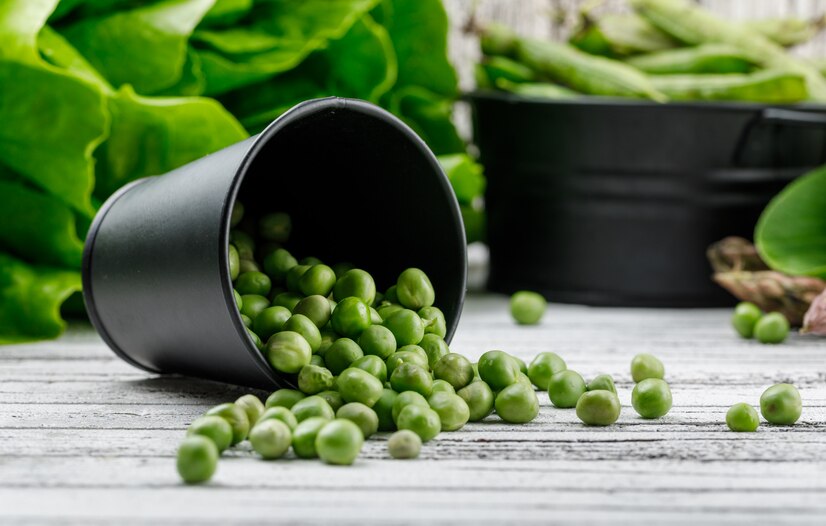9 Benefits Of Peas For Health And Nutrition
Peas are categorized as a type of legume. Legumes are pod-producing plants from the Fabaceae family, which also includes beans, chickpeas, and lentils.
While the plant originally came from Asia and the Middle East, peas are used today in all kinds of recipes. Plus, there are three types of peas with which to mix and match your favorite recipes: snap peas, green or garden peas, and snow peas! Not only are they versatile in cooking, but they offer a wide range of nutritional value as well.
Contents
Checkout 9 Prime Advantages Of Peas For Health And Nutrition:
Peas pack a powerful punch toward your health goals in the following ways.
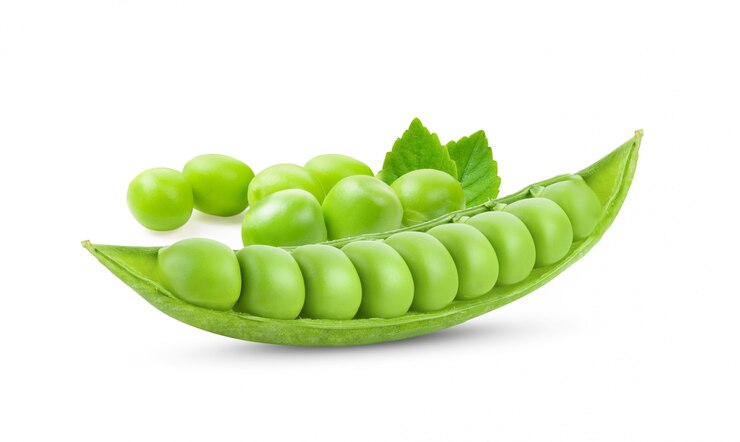
1. Digestive Health
Peas are an abundant source of fiber, which offers several benefits of Peas specifically for the digestive system.
Soluble fiber prevents constipation, while insoluble fiber helps to move food more quickly along the digestive tract. Plus, fiber feeds the good bacteria in your gut while keeping the bad bacteria at bay.
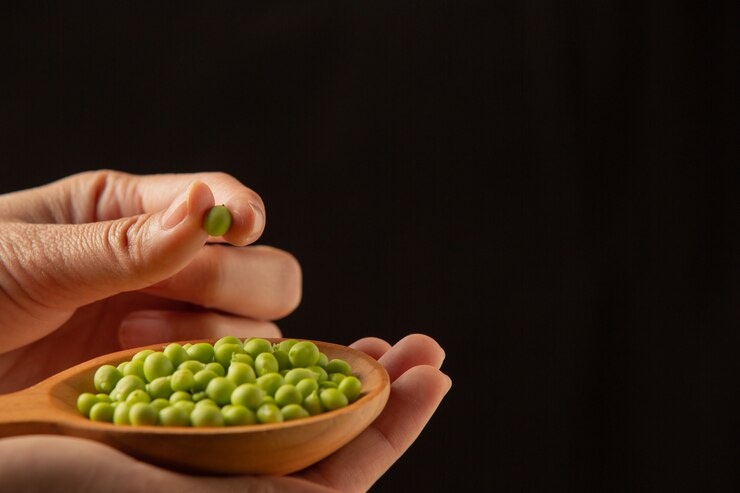
The health of gut bacteria has been linked to gastrointestinal issues like irritable bowel syndrome, inflammatory bowel disease, and colon cancer.
In addition to fiber, peas also contain a nutrient called coumestrol, which may be instrumental in preventing stomach cancer. An antioxidant called phytoalexin may also prove effective in reducing the risk of stomach cancer and ulcers.
2. Eyesight
Carotenoids such as lutein and zeaxanthin are found in a wide variety of fruits and vegetables, including tomatoes, carrots, spinach, corn, cantaloupe, and squash. This micronutrient is what gives these plants their red, yellow, or orange color.
Even though your peas should (hopefully!) be green, they, too, are a good source of carotenoids. Plants use carotenoids during photosynthesis to filter out harmful types of light and also extend the range of light to be absorbed. Therefore, as a nutrient, carotenoids prevent cataracts and age-related macular degeneration.
3. Immune System And Cancer
Peas carry a diverse number of antioxidants, including zinc, catechin, carotenoids, and epicatechin, and vitamins, including A, B, C, E, and K.
These micronutrients are inherently beneficial to the immune system and may help prevent chronic diseases, particularly cancer.
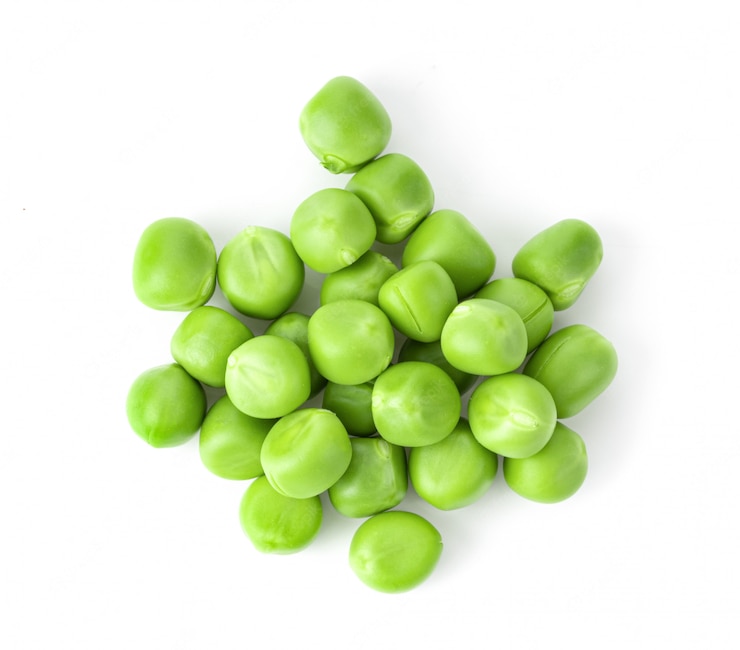
Also found in peas are saponins, which have been linked to cancer prevention, suppressed tumor growth, immune health, and even lowered cholesterol.
4. Inflammation
Inflammation plays a significant role in heart disease, arthritis, cancer, and diabetes. Peas can help reduce inflammation, thanks to antioxidants and nutrients like vitamin A, vitamin B, caffeic acid, catechin, epicatechin, ferulic, and coumestrol.
5. Cardiovascular Health
Heart disease often occurs after too much plaque builds up inside blood vessels. In turn, plaque buildup may be a result of high levels of inflammation, stress, and oxidation from free radicals.
Vitamins and antioxidants aren’t the only substances that can help decrease these conditions.
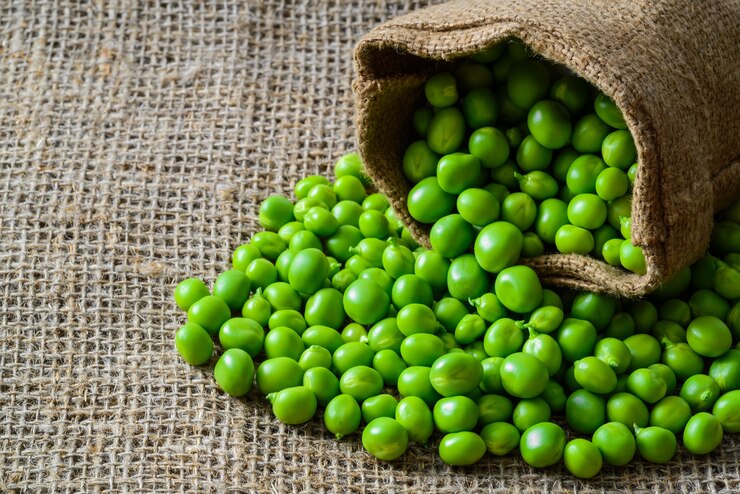
The omega-3 and omega-6 fatty acids in peas may also contribute to plaque, oxidation, and inflammation reduction. On top of this, soluble fiber, as found in peas, is shown to balance cholesterol levels by reducing LDL “bad” cholesterol.
Peas are full of minerals, too, such as potassium, magnesium, and calcium. Minerals like these, combined with antioxidants, vitamins, carotenoids, and flavanols, make this little green legume an excellent protector of your heart health.
6. Blood Sugar
As previously mentioned, inflammation is an important factor in diabetes. In addition to helping lower inflammation levels, peas may also contribute to the regulation of blood sugar levels. Peas contain both fiber and protein, which work in combination to slow down the processing of carbohydrates.
Amylose starch also slows digestion to provide a more gradual rise in blood sugar. Magnesium and vitamins A, B, C, and K aid in blood sugar management and the prevention of diabetes. Lastly, peas are known to have a low glycemic index, which means they are less likely to cause spikes in blood sugar.
7. Protein
Did you know that a half cup of peas contains 11g of protein? Protein is a crucial macronutrient that repairs and builds muscle, bone, cartilage, skin, hair, and nails.
Not only this but protein is used in the synthesis of enzymes and hormones. In other words, protein is important for healthy digestion and hormonal regulation.
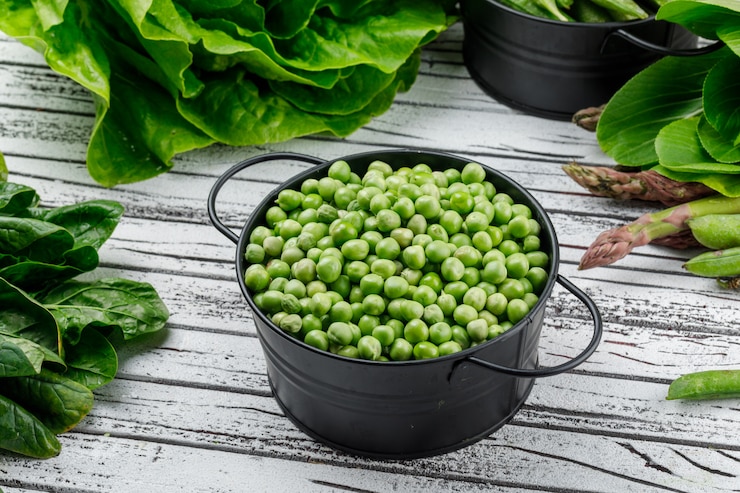
Protein is especially critical in the proper functioning of red blood cells, whose job is to oxygenate the entire body.
If you follow a vegan diet, peas can be an excellent source of plant-based protein and iron. In combination with protein, the iron in peas can prevent anemia and fatigue.
8. Weight Loss
Peas are relatively low in calories compared to other legumes. However, they still provide a feeling of fullness due to their high fiber content. Next time you’re craving a healthy snack, don’t underestimate the stackability of peas!
9. Skin And Hair
Eating peas can help give you the thick shining hair and hard nails you’ve always wanted.
Not only is protein important in the building and repair of skin and hair, but vitamin C is a crucial ingredient in collagen production.
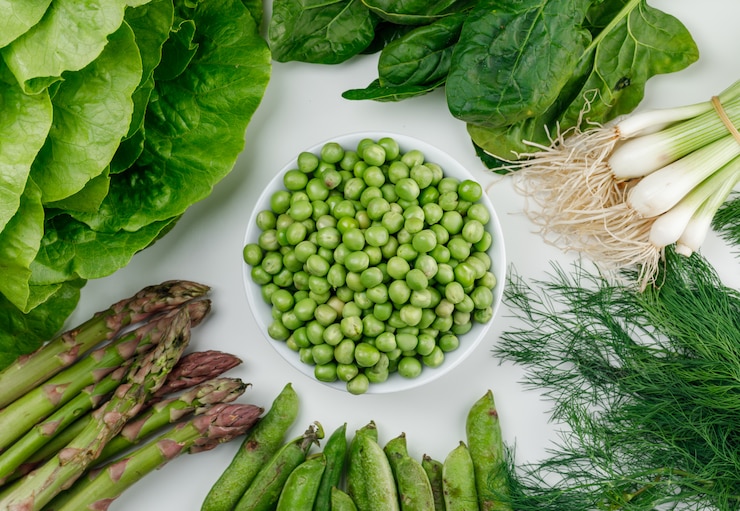
Collagen keeps skin glowing and looking young. Vitamin C and other antioxidants also counteract signs of aging by protecting against damage from free radicals.
In Conclusion
Though they are tiny, they are also mighty! For such a small and unassuming vegetable, peas certainly have a lot to offer toward your health concerns and nutritional goals.
They are also an excellent candidate for growing in a home garden, and they are easy to freeze and store, making them available to you year-round.
While snow peas and snap peas are delicious in Asian recipes like stir-fries, garden peas are even more versatile as an addition to pasta, salads, risotto, Indian rice, and other healthy dishes.
The next time you’re looking to change up your weekly meal prep without foregoing your nutritional goals, don’t underestimate the power of the pea!
Read Also:
- 20 Best Fat Burning Foods for Weigh Loss
- Why Use MyFitnessPal: Pros, Cons, Reviews, And More
- 6 Diet Trends For 2022 And How To Incorporate Them Into Your Lifestyle
- Boku Superfood Review, Ingredients, Benefits, Side Effects, Cost & Is It Safe?
